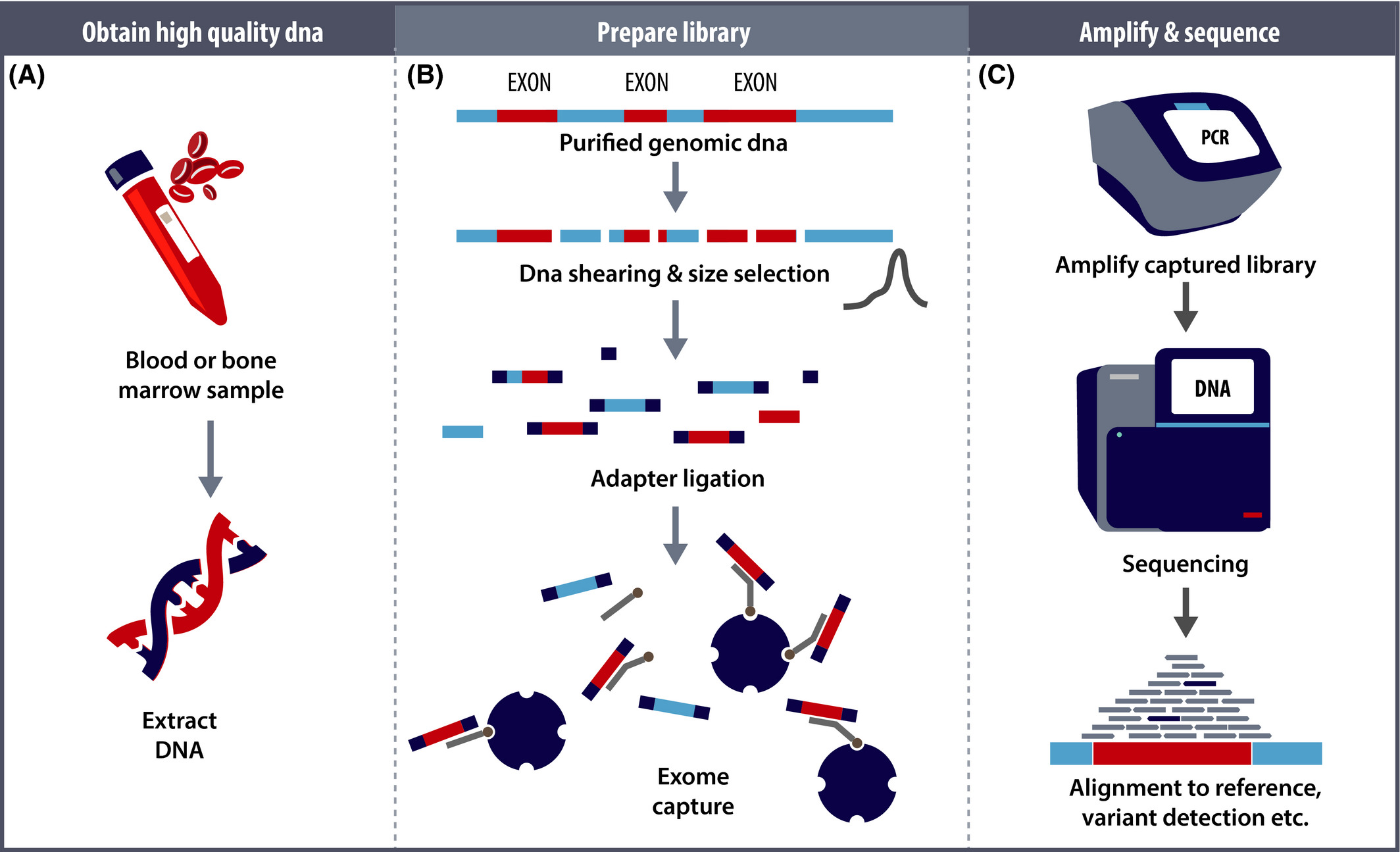Whole Exome Sequencing Service
Whole Exome Sequencing Service is a high-throughput genomics service designed for comprehensive sequence analysis of the exonic regions in the genomes of humans or other species. This service is widely used in fields such as genetic disease research and diagnosis, cancer genomics, personalized medicine, and drug target discovery.
Exons are the coding regions of genes, and although they make up only about 1% of the human genome, they contain 85% of the known disease-related gene mutations. Whole Exome Sequencing (WES) is a technique that provides comprehensive and systematic sequencing of all the exonic regions in the genome. This technique selectively enriches exonic regions using specially designed exon capture probes, followed by sequencing to identify mutations such as single nucleotide polymorphisms (SNPs), small insertions/deletions (Indels), and other variations that may affect protein function. WES has become an essential tool in genetic research, clinical diagnostics, drug development, and personalized medicine.
Using high-throughput sequencing platforms and exon capture technology, MtoZ Biolabs provides Whole Exome Sequencing Service to specifically enrich all exon regions and perform deep sequencing on them, helping researchers to deeply explore the relationship between genetic variation and disease phenotypes.
Analysis Workflow

Hansen MC. et al. Br J Haematol. 2020.
The main process of Whole Exome Sequencing Service is as follows:
1. Sample Preparation and DNA Extraction
High-quality genomic DNA is extracted from blood, tissue, or cells.
2. Exon Capture and Library Construction
The extracted DNA is fragmented, and specific exon capture probes are used for enrichment, followed by library construction for sequencing.
3. High-Throughput Sequencing
The library is loaded onto a high-throughput sequencing platform for comprehensive sequencing of exonic regions.
4. Data Processing and Alignment
Bioinformatics tools are used for data alignment and cleaning to obtain accurate sequence information.
5. Variant Detection and Annotation
Single nucleotide polymorphisms (SNPs), small insertions/deletions (Indels), and other variants are identified and annotated.
6. Result Analysis and Report Generation
Functional analysis, disease association prediction, and the generation of a detailed analysis report are conducted based on the detected variants.
Service Advantages
1. Targeted Approach: Whole exome sequencing focuses only on the exonic regions of the genome, which accounts for about 1% of the total genome.
2. High Coverage Depth: It offers the ability to sequence at a higher depth, thus improving the sensitivity and accuracy of variant detection.
3. Cost-Effective: Compared to whole genome sequencing, WES is more affordable, produces smaller data sets, and is suitable for large-scale screening and clinical research.
4. Low Sample Requirements: WES generally has lower requirements for sample quality and quantity, making it ideal for clinical and precious samples.
5. Time Efficiency: WES analysis is faster than whole genome sequencing, with quicker data analysis processes that lead to rapid results.
6. Strong Data Compatibility: WES data can be compared and integrated with other genomic data (such as whole genome sequencing and transcriptome sequencing), providing more comprehensive information.
Sample Submission Suggestions
Sample Type: Blood, tissue, cells, FFPE samples, etc.
Sample Purity: Extracted DNA should be high-quality, intact genomic DNA.
Transportation Conditions: Samples should be transported at room temperature; for long-duration transportation, refrigeration or dry ice is recommended.
Additional Notes: If you are unsure about sample preparation or submission, please feel free to contact our technical support team.
Applications
Whole Exome Sequencing Service can be applied in various fields, such as:
Disease Genomics Research
Identify mutations associated with genetic diseases, cancer, etc., and uncover potential genetic mechanisms.
Clinical Diagnosis and Personalized Medicine
Used for clinical diagnosis of rare diseases and genetic disorders, providing variant information for precision medicine.
Drug Development
In the process of new drug screening, identifying exonic variants related to diseases, advancing the development of targeted therapies.
Genetic Breeding and Agricultural Research
Provides genomic data support for animal and plant breeding, and the selection of superior breeds.
Deliverables
1. Comprehensive Experimental Details
2. Materials, Instruments, and Methods
3. Total Ion Chromatogram & Quality Control Assessment (project-dependent)
4. Data Analysis, Preprocessing, and Estimation (project-dependent)
5. Bioinformatics Analysis
6. Raw Data Files
Related Services
How to order?







